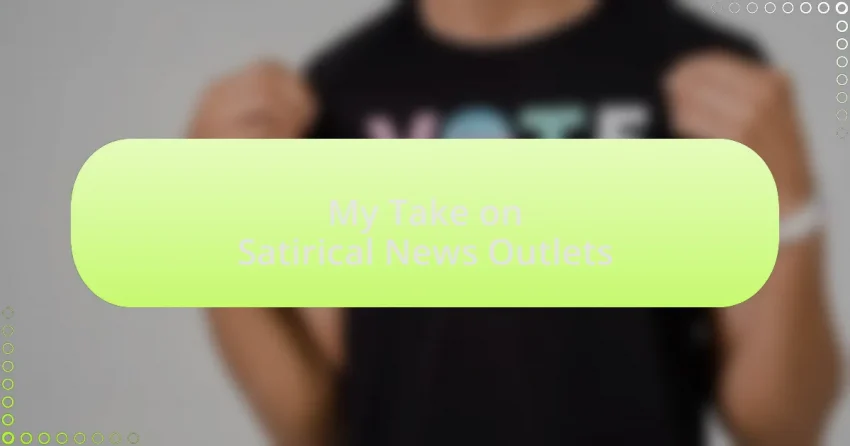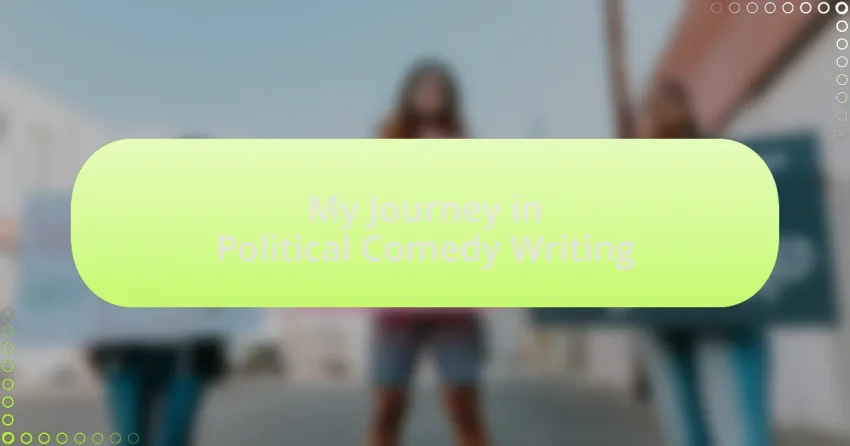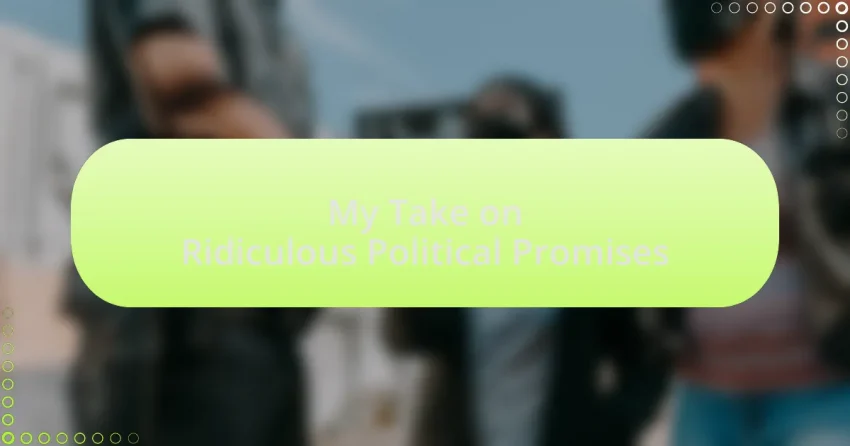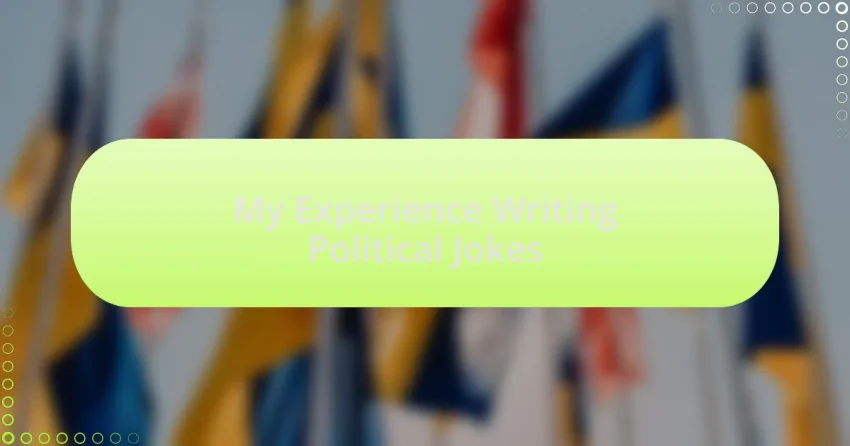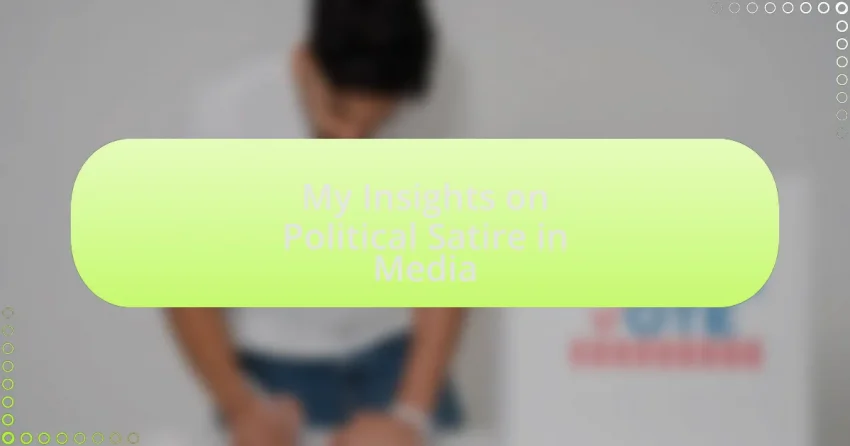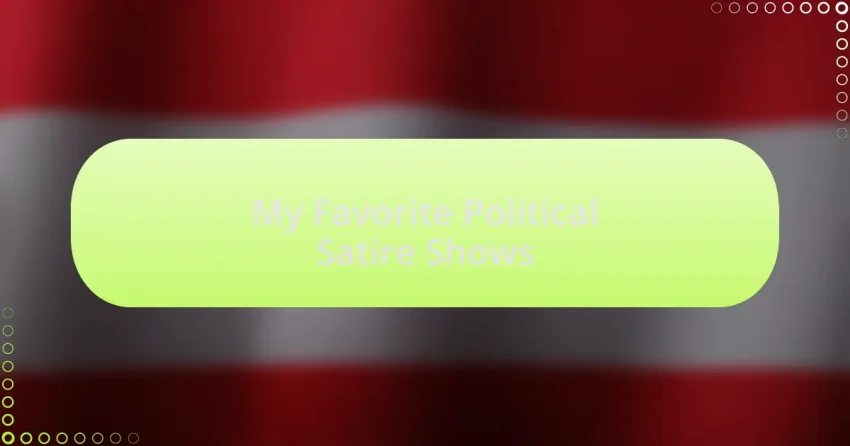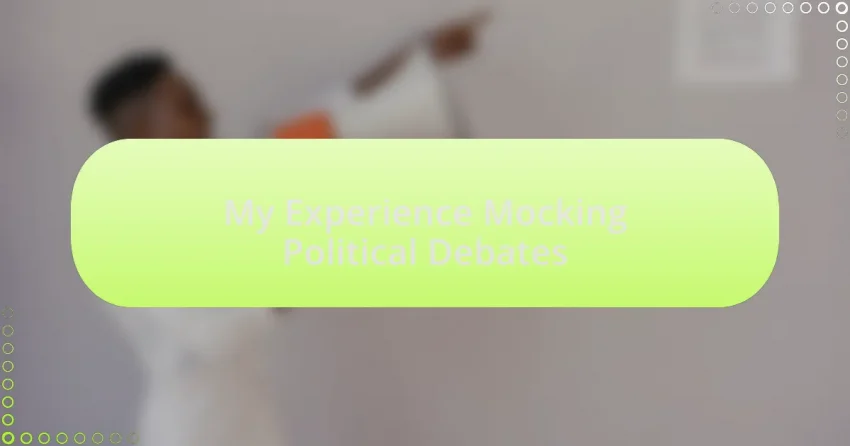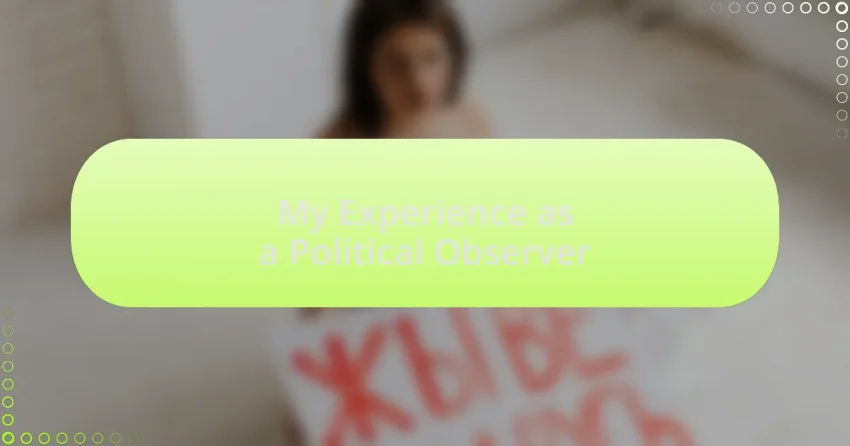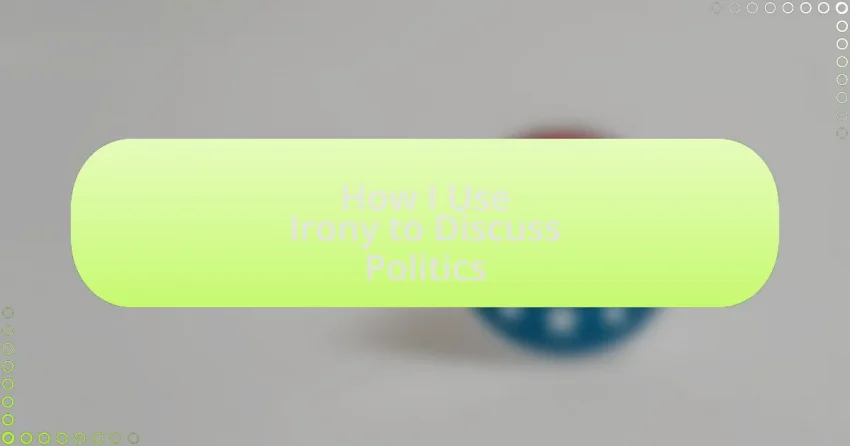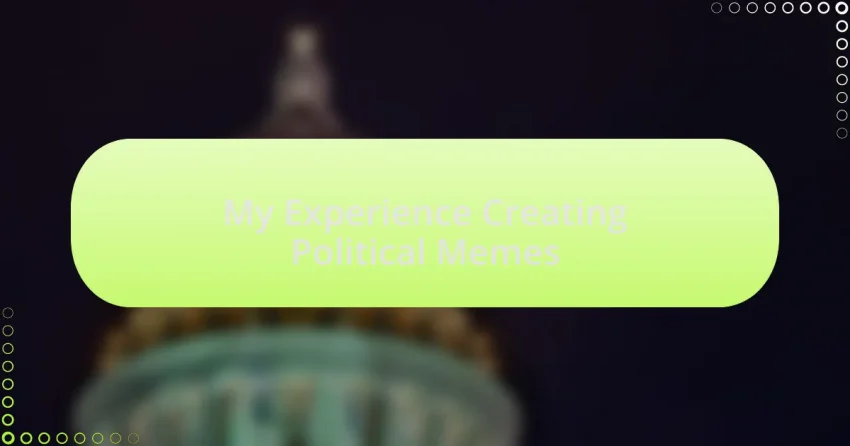Key takeaways: Satirical news outlets blend humor with critical commentary, encouraging audiences to question societal norms and media narratives. Effective political commentary can inspire dialogue, provoke thought, and motivate action by revealing injustices or complex issues. When engaging with satire, it’s essential to evaluate the credibility of the source and consider the intent behind the…
My Journey in Political Comedy Writing
Key takeaways: Political comedy writing blends humor with critique, facilitating discussions on complex issues while balancing respect and humor. Humor in politics helps make challenging topics accessible, disarming tension and fostering important conversations. Key elements of effective political commentary include relevance, clarity, and an authentic voice, which resonate with audiences. Challenges in political writing involve…
My Take on Ridiculous Political Promises
Key takeaways: Political promises can inspire hope but often lack specific plans, leading to skepticism about their feasibility and authenticity. These promises shape public expectations and play a crucial role in accountability, especially when leaders fail to deliver on commitments. The gap between ambitious promises and reality can erode trust in political figures, emphasizing the…
My Experience Writing Political Jokes
Key takeaways: Political commentary engages with societal complexities, reflecting personal emotions and fostering dialogue across differing perspectives. Humor in politics makes complex issues relatable, promoting open discussions and providing relief during challenging political times. Effective political jokes rely on timing, relatability, and clever wordplay, but also pose challenges in balancing humor and sensitivity. Writing political…
My Insights on Political Satire in Media
Key takeaways: Political satire serves as an accessible medium for understanding complex political issues and fostering public discourse. Techniques like exaggeration, irony, and parody are essential in highlighting political flaws and prompting critical engagement from audiences. Satire can create a sense of community by bonding individuals over shared frustrations and perspectives regarding political events. Popular…
My Favorite Political Satire Shows
Key takeaways: Political satire combines humor with critical commentary, engaging viewers and prompting self-reflection on personal beliefs and societal issues. Effective satire highlights the absurdities of political discourse and fosters community among viewers, turning entertainment into a platform for meaningful discussions. Key features of satirical shows include the use of irony, absurdity, and strong character-driven…
My Experience Mocking Political Debates
Key takeaways: Effective political commentary intertwines objective analysis with personal perspectives, fostering public discourse and encouraging engagement with complex issues. Political debates reveal the human side of candidates, allowing voters to connect emotionally and potentially influencing their political beliefs. Mockery can make political discussions more accessible while simultaneously highlighting serious issues; timing and exaggeration are…
My Experience as a Political Observer
Key takeaways: Political commentary connects human experiences with political actions, emphasizing the importance of understanding personal narratives in shaping public perception. Analytical thinking, strong communication skills, and awareness of context are essential for effective political observation, allowing observers to interpret complex dynamics. Empathy is critical in political analysis, as personal stories and emotional connections significantly…
How I Use Irony to Discuss Politics
Key takeaways: Political commentary involves interpretation shaped by personal biases, revealing the complexity of discussions beyond mere facts. Irony serves as a tool in politics to highlight contradictions, stimulating critical thinking and deeper conversations about political truths. Effective techniques for using irony include juxtaposition, satire, and rhetorical questions that challenge prevailing narratives. Personal experiences with…
My Experience Creating Political Memes
Key takeaways: Political commentary influences public opinion and engages audiences emotionally, transforming abstract discussions into relatable experiences. Memes serve as powerful tools in political discourse, combining humor and education to foster community and drive engagement. Effective meme creation relies on balancing humor with messaging, timing relevance, and maintaining simplicity for maximum impact. Researching political topics…
